Revamping Rocky Mountain Institute’s Website for Streamlined Functionality & User-Centric Navigation
Home page - fully responsive website

Transportation page - desiged for mobile, tablet and flexible screensize, utilizes the effect of counting down numbers to communicate impact
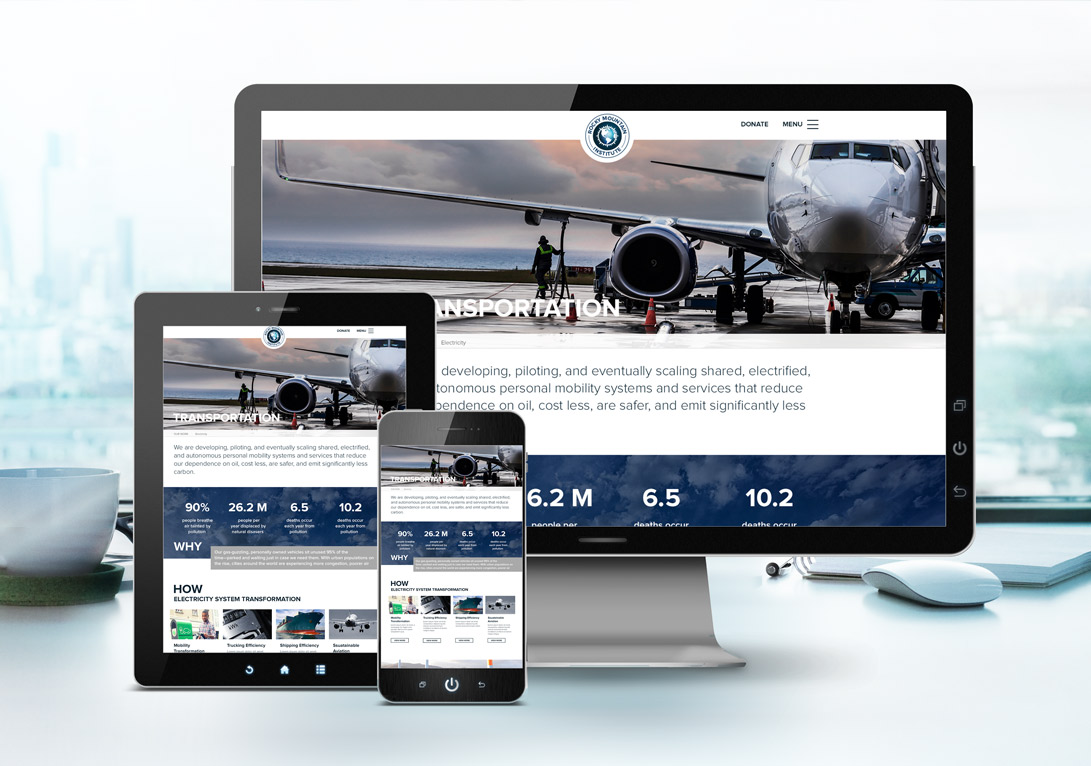
Mobility Page viewed on tablet
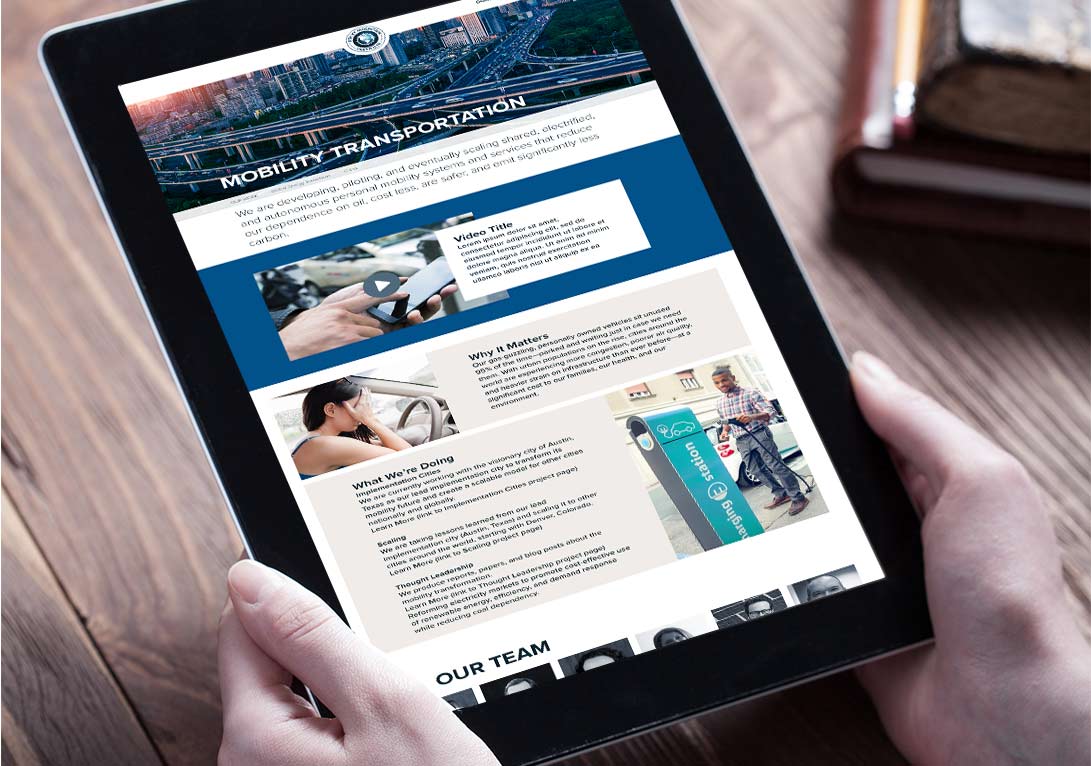
Impact Page: Health
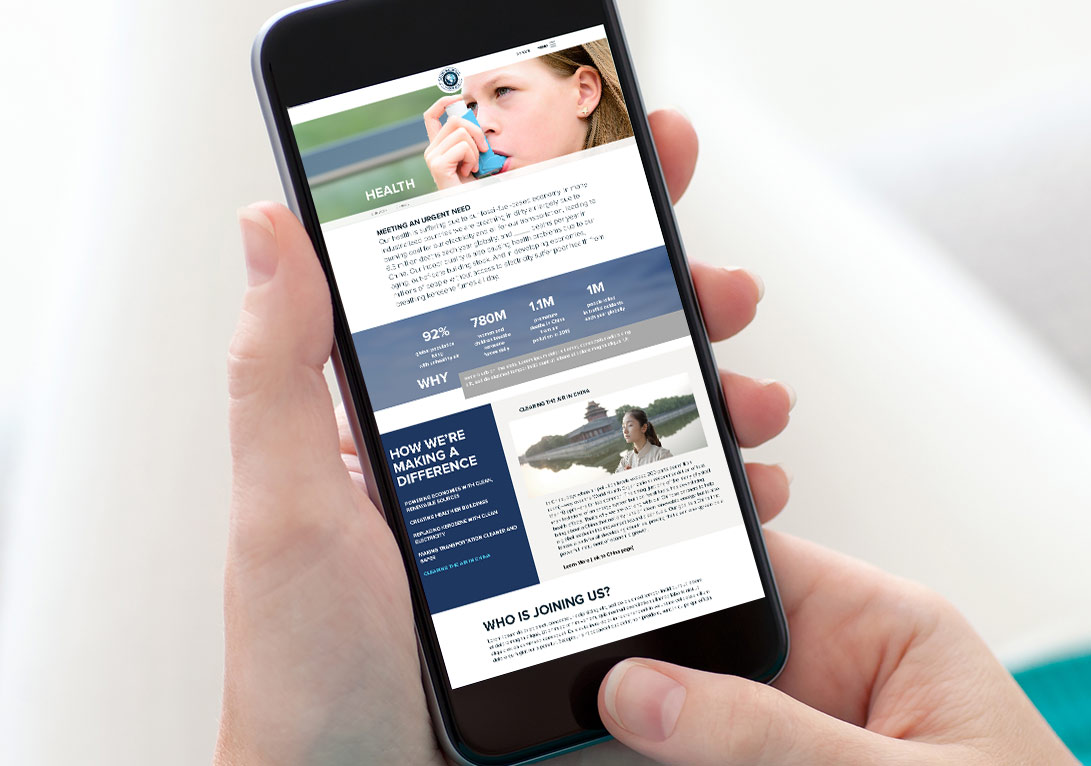
Home page - Parallex Scrolling
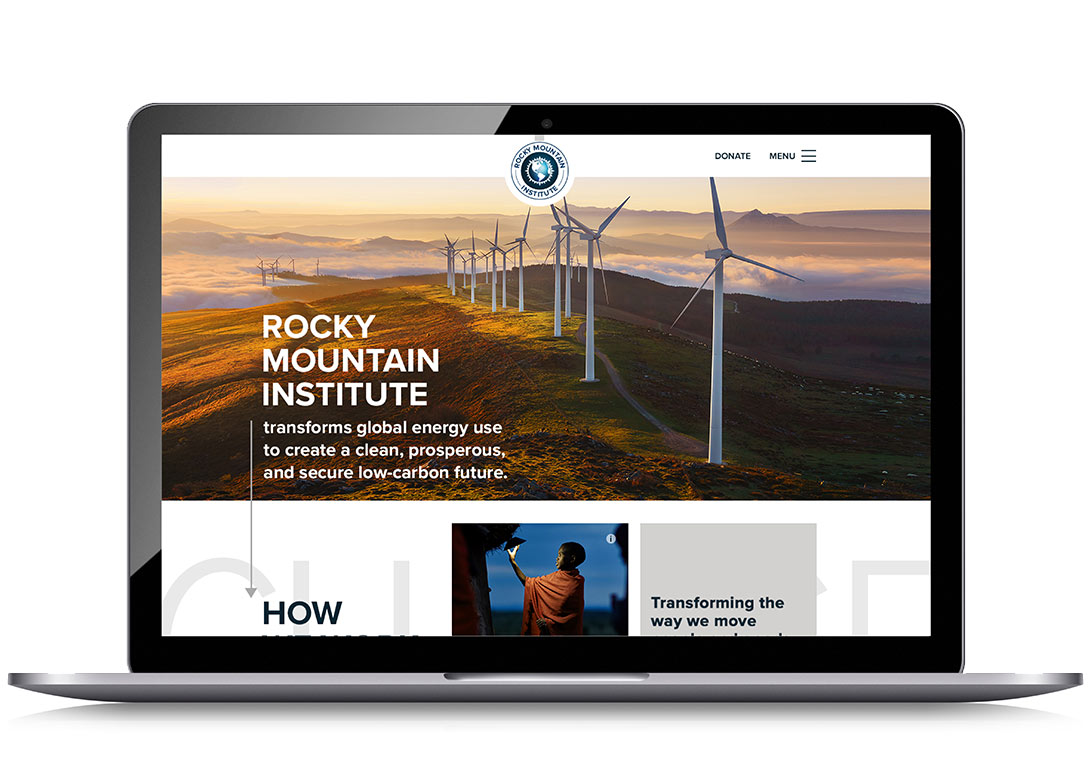
Home page includes an interactive map

Three Tier Navigation
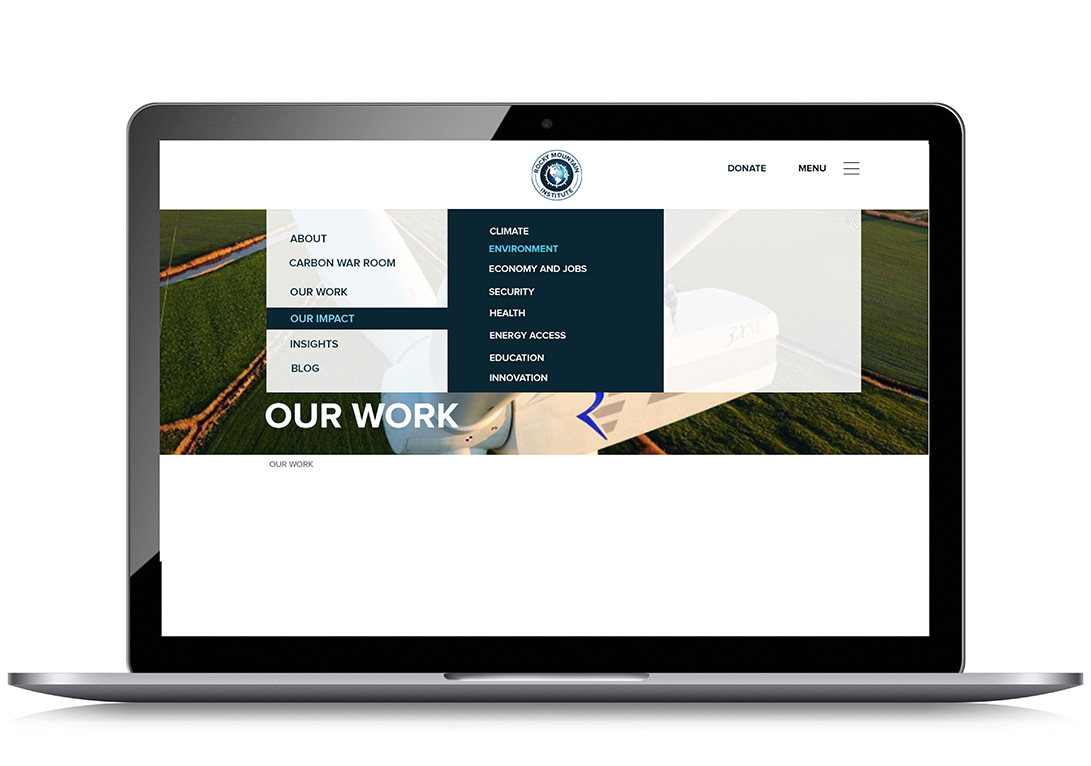
Navigation through menue or through story telling on each page
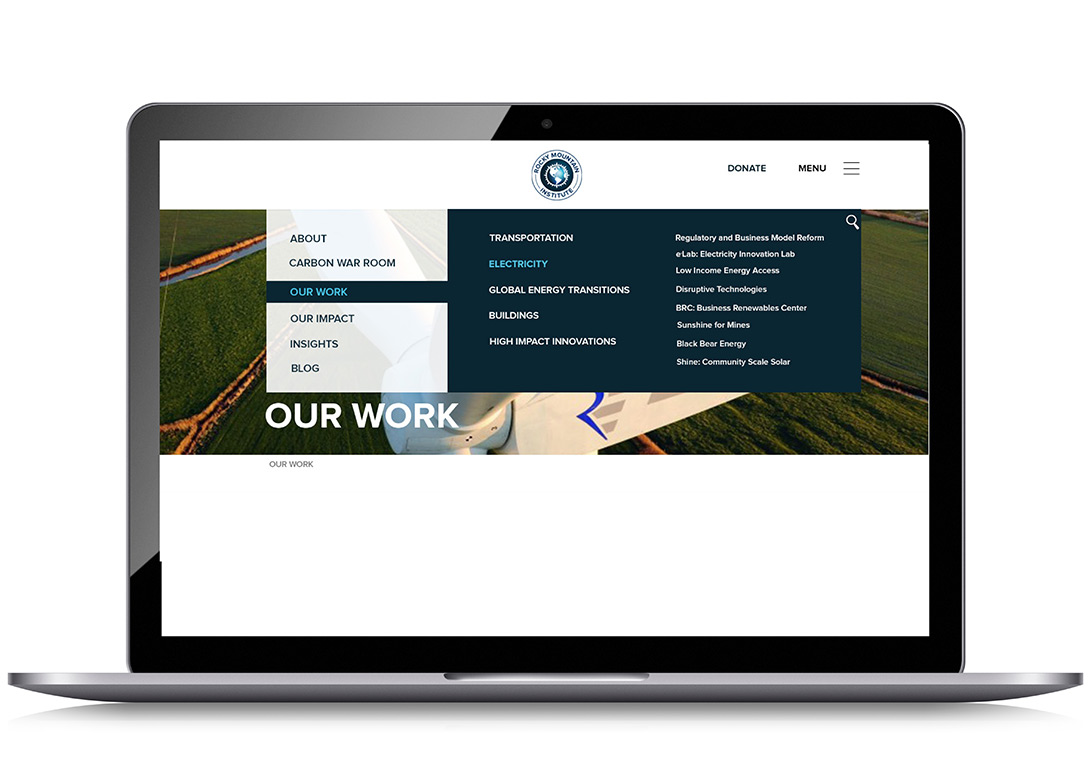
China page
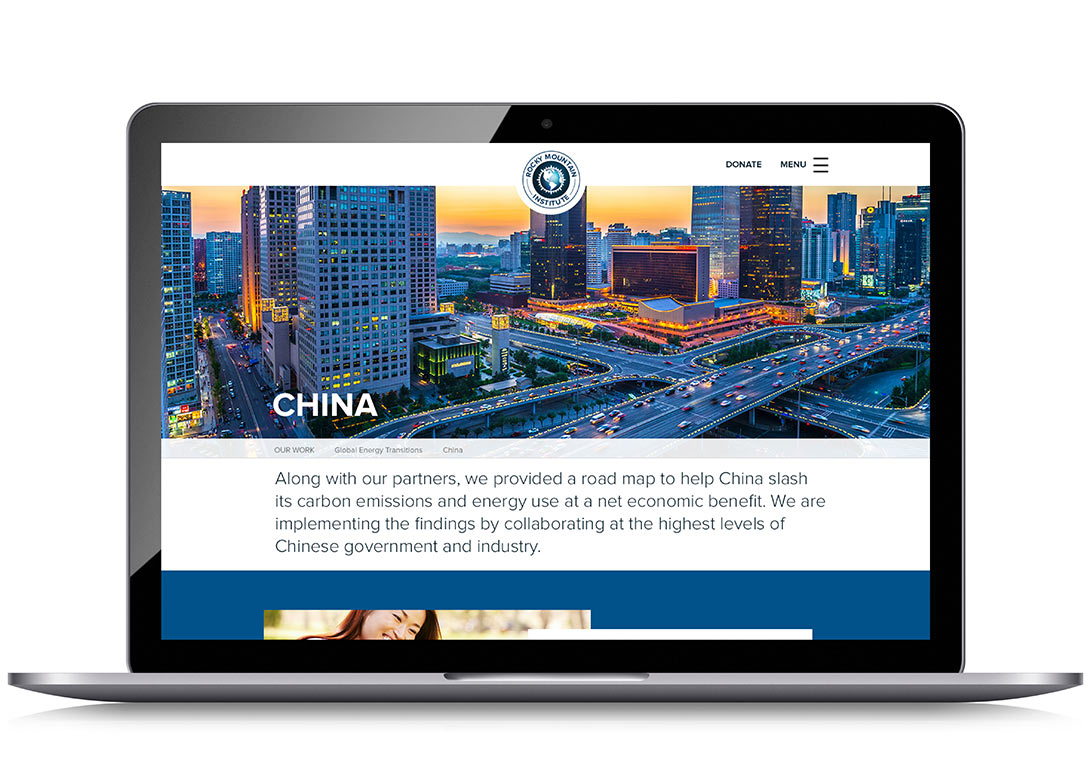
Interactive Donation Page
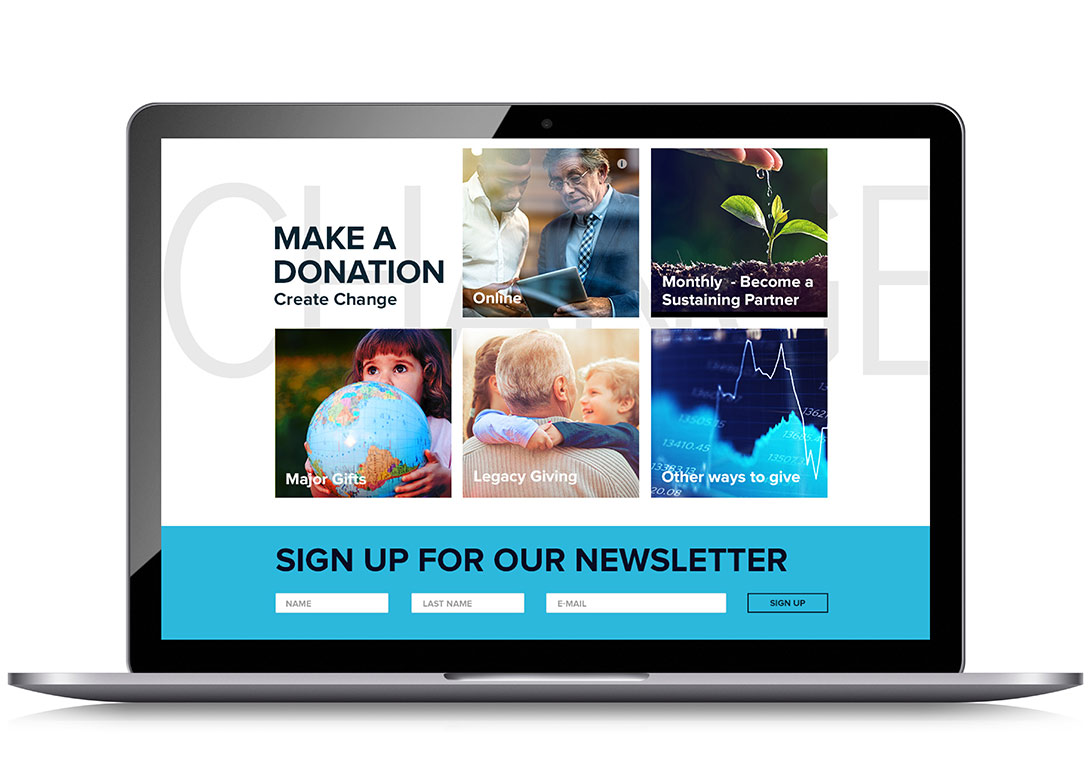
Footer Design

About This Project
Revamping Rocky Mountain Institute’s Website for Streamlined Functionality & User-Centric Navigation
I led the design and development of a fully responsive, user-focused website for Rocky Mountain Institute (RMI), addressing the organization’s evolving content strategy, navigation, and backend management needs.
Comprehensive Site Audit & Strategic Architecture
Before redesigning RMI’s digital presence, we conducted a site audit to assess existing content, identifying what should be retained, reworked, or archived. This strategic approach ensured that the new site architecture aligned with RMI’s evolving goals, while providing users with a seamless way to engage with its vast resources.
User-Driven Navigation & Enhanced Content Accessibility
Understanding that RMI serves multiple audiences with varying needs, we developed a dual-entry content structure:
- A storytelling-driven homepage featuring visually engaging content to introduce new users to RMI’s mission and impact.
- A streamlined, intuitive menu system designed for returning visitors and industry professionals who need quick, direct access to specific content.
Content Management & Future-Proof Scalability
Recognizing the need for long-term maintainability, we built the site on an easy-to-navigate content management system (CMS). This ensured that multiple team members, regardless of technical expertise, could seamlessly update the site without reliance on a web developer.
Optimized UX/UI for High-Impact Engagement
The redesigned site prioritized searchability and ease of navigation, making it effortless for users to locate key reports, publications, and insights. Our approach also incorporated best practices in responsive design, ensuring accessibility across all devices.
Through this redesign, RMI now benefits from an efficient, scalable website that delivers both an engaging user experience and seamless content management—a future-ready digital platform that evolves with the organization’s mission.
Rocky Mountain Institute - Web Design
Date
May 01, 2017
